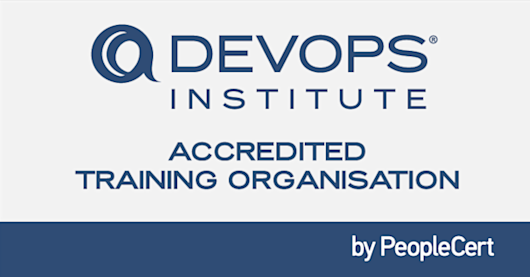What training can a CIO take to learn about Agile?
Regardless of your product, service or industry, the need to embrace technology through digitisation and virtualisation makes every organisation a technology company.
This means investing in digital skilling for end users and advanced ICT training for technical experts within the team. Another requirement for Chief Information Officers (CIOs) is to embrace the agile mindset. Learn more from McKinsey & Company's "How to Become an Agile CIO".
Typically, CIOs oversee a company's information and communication technology. Policy and practice development, planning, budgeting, resourcing, and training are included.
But in an Agile organisation within a landscape that demands speed, the CIO role is redefined into three key responsibilities. We share Agile training courses you can take in person or online to equip yourself with the skills to take on what's expected of you in the role.
Technology architect/visionary - CIOs are called to build the organisation's IT strategy and analyse how different technologies can benefit or improve existing business processes.
The Agile Service Manager (CASM) course by the DevOps Institute introduces IT leaders to the application and integration of agile thinking into service management processes, design and improvement.
The Agile Business Analysis (AgileBA®) courses help students understand the concepts, benefits and risks of Agile Development.
Knowledge and talent driver - Besides hiring the right team members, a CIO is expected to set key performance indicators and build the team's capabilities through training and mentorship.
Leaders can build their own expertise through these courses from the fundamentals to Practitioner or Master Level: Agile Project Management (AgilePM®), Agile Programme Management (AgilePgM®), Scrum Overview, Scrum Master, and Scrum Product Owner.
They can tap into courses focused on hiring the right team member like a Recruitment and Selection course.
Problem solver - CIOs need to help their teams address roadblocks while providing guidance and feedback to the output. Courses focused on working with teams through transformation can equip you with the skills to do so. These include Scrum Training for Teams.
Deloitte's CIO Journal shared observations about Agile software development to help CIOs leverage this iterative and fast-paced mindset. We focus on a few of these observations that resonate with many of our clients and the courses that can help you address these.
Agile can be contentious. While the Agile and Scrum methodology is clear, it allows people to adapt it to their needs and interpret it in their context. This creates its fair share of debate. By focusing on "improving business outcomes", Agile teams can position themselves better when presenting to the rest of the company and other stakeholders.
Automation can reduce missteps. Automated and, ideally, end-to-end software testing should be integral to the development cycle rather than at the 11th hour before going live. Leaders should also ask teams about automation and testing before starting the project. For this, you can look at Business Applications or Web and Application Development courses
Iteration produces better outcomes. A case people make about the Waterfall method or other traditional projects is that you only deploy once everything has been reviewed and included. In reality, this means the market would have changed during this period. To this, we say that Agile project management is test and data-driven. It addresses priorities based on what's known at the time, allowing the team to pivot once you get more data. The Agile Business Analysis (AgileBA) courses offer an understanding of how AgileBA processes can guide the planning, analysis, elicitation and control of successful Agile projects. Data and Analytics courses can support Agile teams with reporting and data gathering to inform continuous improvement.
Communication is essential. Whether through daily collaboration between stakeholders or through dividing milestones in a project like you would divide stories into chapters, or even through understanding business user stories. Empathy and constant feedback are critical to a project's success. Professional Development courses focused on communication and empathy can strengthen your team.













